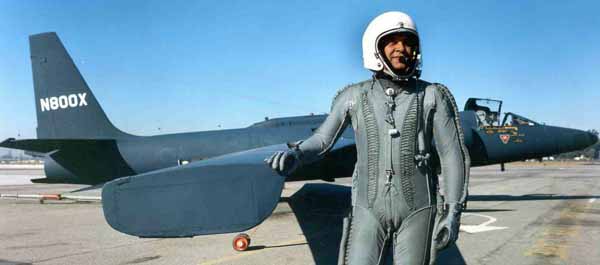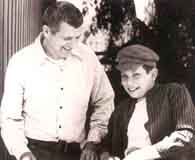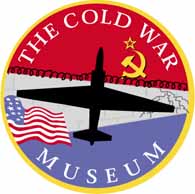50th Anniversary of Spy Exchange at Glienicker Bridge in Potsdam, Germany

February 10, 2012 marks the 50th anniversary of the spy exchange between U-2 pilot Francis Gary Powers and Soviet spy Rudolph Abel on the Glienicker Bridge in Potsdam, Germany.
It was a cold, dark, foggy morning at the Glienicker Bridge in Potsdam, Germany on the morning of the exchange. Two prisoners and an entourage of KGB and CIA officials were on either side of the bridge in their respective delegations. Once the agent’s identities were confirmed, the signal was given and the prisoners walked across the “Bridge of Spies” to their respective freedom.
{default}Rudolph Abel was welcomed home as a hero to the Soviet Union. But Powers returned home to controversy surrounding the U-2 Incident. Because of inaccurate editorials in the press, many questioned the role he played in this international incident of espionage and intrigue between the two superpowers, the United States and the Soviet Union.
 The U-2 Incident which occurred on May 1, 1960 was one of the most pivotal events in the history of the Cold War. It was the first time in U.S. history that an American president had been caught lying to the American public and to the world. The event caused such a strain on US/Soviet relations that Premier Khrushchev canceled an invitation for President Eisenhower to visit the Soviet Union later that year. In addition, the Paris Summit Conference that was planned for May 16, 1960 collapsed when Eisenhower refused to apologize to Premier Khrushchev for authorizing the U-2 overflights of the Soviet Union.
The U-2 Incident which occurred on May 1, 1960 was one of the most pivotal events in the history of the Cold War. It was the first time in U.S. history that an American president had been caught lying to the American public and to the world. The event caused such a strain on US/Soviet relations that Premier Khrushchev canceled an invitation for President Eisenhower to visit the Soviet Union later that year. In addition, the Paris Summit Conference that was planned for May 16, 1960 collapsed when Eisenhower refused to apologize to Premier Khrushchev for authorizing the U-2 overflights of the Soviet Union.
Unlike the recent downing of a CIA drone, the controversy that surrounded the U-2 Incident was magnified because of a captured pilot, a lying U.S. President, and an international show trial. The event was controversial not only because the U.S. was caught spying on the Soviets by flying over their territory, a practice that continues to this day over Iran and other countries hostile to the U.S., but because some people thought that the pilot did not follow orders upon capture or that the CIA had intentionally sabotaged the flight to ruin the May 16 Paris Summit Conference.
Rumors, speculation, misinformation, and some outright lies circulated in the press during Power’s captivity about his conduct, loyalty, and the cause of his capture. After enduring three months of Soviet interrogations, he was subjected to a highly publicized show trial designed to further embarrass the United States. Because there was the possibility that the verdict might result in the death penalty, Power’s Soviet appointed defense attorney convinced him to make a public “apology” in order to save his life. As a result, instead of being sentenced to death, the Soviet judges sentenced Powers to ten years in prison. But he ended up serving a total of 21 months before being exchanged for Soviet Spy Rudolph Abel.
During the time the pilot was incarcerated in the Soviet Union, CIA Director Allen Dulles and other U.S. government officials thought that the most likely cause for his capture was a flame out which caused the U-2 to descend to a lower altitude where it was then hit by a Soviet MiG or missile. This is what many in the CIA and U.S. government thought and advocated to the press until the pilot was returned home, debriefed, and able to share his experience with his superiors.
When Powers returned home the CIA, the USAF, and the designer of the U-2, Kelly Johnson, extensively debriefed him for three weeks at a safe house in Maryland. During his debriefing he was able to confirm that there was no flame out or sabotage, but instead the near miss of a Soviet S-75 Dvina (SA-2), which exploded below and behind the tail section of the aircraft caused structural failure of the airframe that brought down his plane.
On March 6, 1962, Powers appeared in an open hearing before the Senate Committee on Armed Services, chaired by Senator Richard Russell and including Senators Prescott Bush and Barry Goldwater, Sr. The committee exonerated him of any wrongdoing and called him "a fine young man performing well under dangerous circumstances." After his testimony, the audience gave him a standing ovation. But at the time the U.S. government didn’t clear up many of the false stories that had been circulated, and the CIA wouldn’t permit him to write his account of the incident until many years later. As often happens today, there were many gaps between what the government knew and what it told to the public.
 During the Cold War, some Americans questioned Powers conduct and loyalty. Many of these same people criticized President Eisenhower because the government was caught in a lie and made to look foolish in the eyes of the world and criticized Powers because he "didn’t follow orders" and commit suicide when faced with capture.
During the Cold War, some Americans questioned Powers conduct and loyalty. Many of these same people criticized President Eisenhower because the government was caught in a lie and made to look foolish in the eyes of the world and criticized Powers because he "didn’t follow orders" and commit suicide when faced with capture.
In fact, there had never been any such orders. To the contrary, the CIA’s instructions on capture were as follows, "If capture appears imminent, pilots should surrender without resistance and adopt a cooperative attitude toward their captors." Others claimed he gave out vital information concerning the aircraft. In fact, the opposite was true; he gave no vital information, nor did he ever reveal the names of any of the pilots or denounce the United States of America. Again, the CIA instructions were, "Pilots are perfectly free to tell the full truth about their mission with the exception of certain specifications about the aircraft."
Despite the Senate committee’s exoneration Francis Gary Powers, to borrow from John Le Carre, was the spy who was left out in the cold. Fortunately, history has a way of correcting itself.
When President Eisenhower admitted that he had authorized the U-2 flights, it was one of the first times that the American people knew they had been deceived by their government and lied to by their President. After 50 years and such events as Kennedy and Marilyn Monroe, Lyndon Johnson and the Vietnam War, Nixon and Watergate, Reagan and Iran Contra, this is something we take for granted today. Although it was for a necessary purpose that time, how many times do we get misinformation from governments? How often is it justified?
It has been 50 years since the melodramatic spy exchange. Many cherished illusions went down with the U-2 and Americans grew a little wiser, but sadder. For better or worse, as time passes, current events fade into history, and historians are able to reflect upon past events.
As a result of the end of the Cold War, Powers’ reputation started to transform from one that was infamous to that of an American hero that was caught up in the global political environment of the time. Over the past 50 years additional evidence has surfaced from both sides, which confirms what Powers always maintained, that his U-2 was shot down while flying at an altitude of 70,500 feet over Sverdlovsk.
As a result of declassified documents pertaining to the U-2 Incident, the USAF recently determined that throughout the duration of his captivity, Powers exhibited steadfast loyalty and resistance to exploitation despite all Soviet efforts through cajolery, trickery, insults, and threats of death to obtain classified information. This sustained courage in an exceptionally hostile environment demonstrated gallantry that rises to the level of a Silver Star. The posthumous awards ceremony for Powers’ Silver Star will take place in 2012 once the USAF decides on a date and time.
For my father and the Powers family this posthumous award 50 years after the fact goes to show that it is never too late for a government to help set the record straight.
Francis Gary Powers, Jr is the Founder and Chairman Emeritus of The Cold War Museum (coldwar.org) in Vint Hill, Virginia.


I knew Oliver Powers when I was a boy. He was a cobbler who fixed my shoes sometimes. Very nice man. I met his son, Gary Powers after his release from Russia at my uncle’s restaurant-Glenn’s Drive Inn in Wise, Va. One of my JJKelly hi classmates’ father thought Powers should have committed suicide instead of being captured. It was the first political argument I remember having. I said emphatically “NO, he should not have.”
Such a shame that he was not given the honor and recognition he deserved years ago.